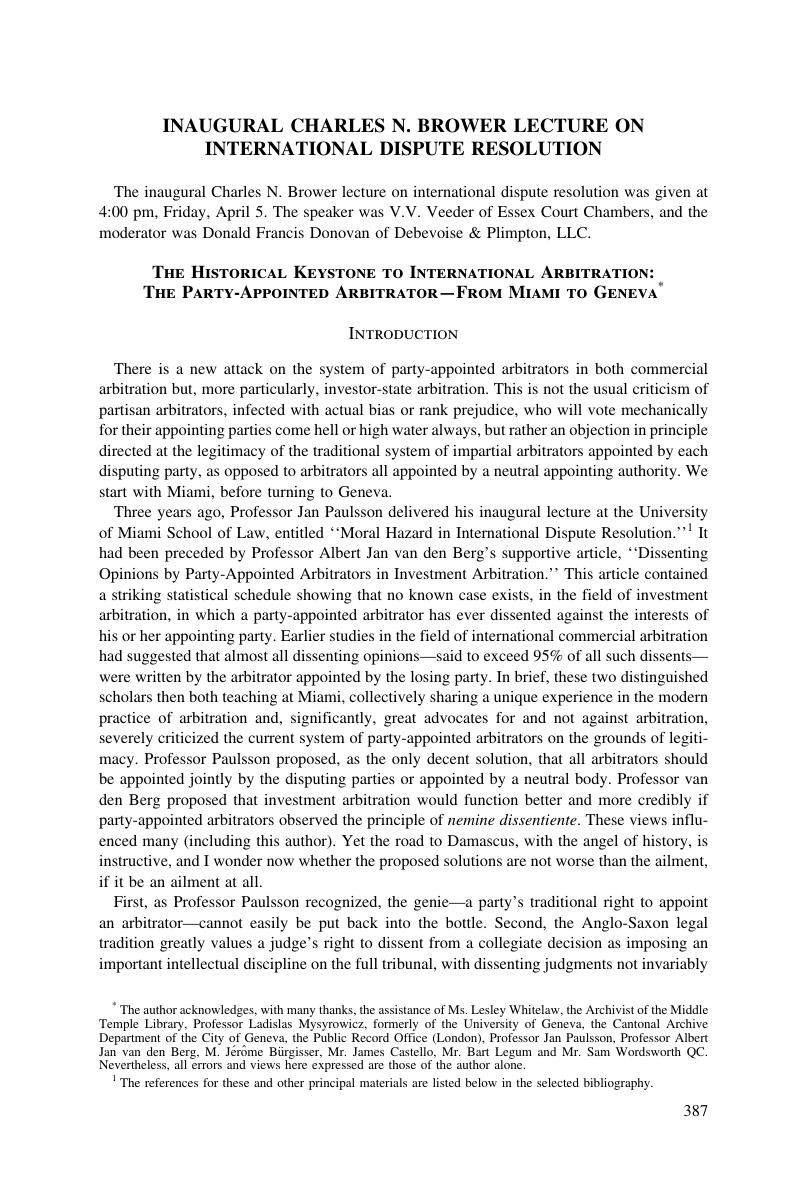Pace Law School, Westchester, New York Symposium (December 6–8,2004) “The Judiciary and Environmental Law—Trade, the Environment and Provincial/State Courts,” verbatim transcript of Judge Mikva’s contribution (transcribed from the audio tape at 26:31–28:35, taken from 24:02–15:50):
I was called by [the Department of] Justice and asked whether I’d be interested in this international arbitration which involved a dispute between a Canadian investor and the United States under NAFTA, and I said “Yes, that sounds interesting,” and I met with the Department of Justice lawyers. Under the arbitration procedures, you’re allowed to meet with the parties up until the time that the panel is constituted and at that point everyone is supposed to act as a neutral and avoid ex parte contacts. This was before the panel was constituted, and I met with the Justice Department lawyers and one of them said to me, “You know, judge, if we lose this case, we could lose NAFTA,” and I said “Well, if you want to put pressure on me that does it, but why is this so important?”, and he said “Well, they’re seeking 400 million dollars damages or 300 million dollars damages under a provision that I’ll bet you didn’t know was in NAFTA when you voted for it,” and I said, “You’re talking about an arbitration procedure,” and he said “Yes,” and I said, “You’re right. Not only didn’t I know about it but I would venture that most of the Members of Congress who voted for NAFTA had no idea that there was an arbitration procedure in it or how far that arbitration procedure extended.” The fights that were going on about NAFTA was [sic] whether we were maintaining a free and level playing field for our workers, whether we were preserving environmental conditions, whether the pact was going to lead to the exporting of jobs to Mexico and perhaps to Canada, and whether in fact this was an appropriate treaty for three countries that have different levels of economic activity. Those were the debates. No one ever talked about arbitrations, no one ever talked about investor disputes. I had heard of bilateral investment treaties before, but I never even conceived that NAFTA had provisions that paralleled some of those BITs’ specific provisions. Well, I agreed to do it, and the panel was duly constituted….
Google Scholar 




